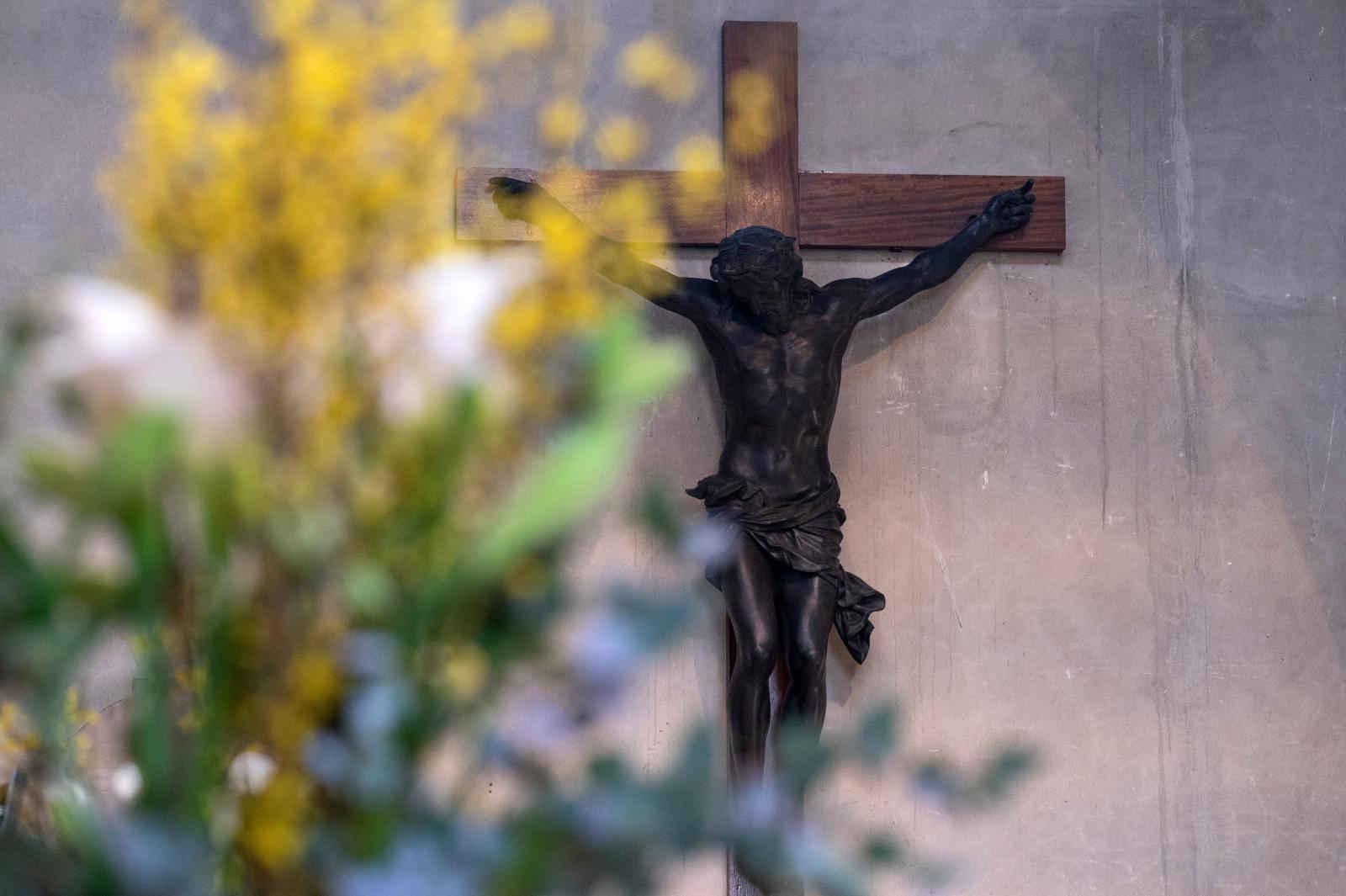The Church teaches that life is to be nurtured from conception to natural death. In England and Wales, Day for Life is celebrated on the third Sunday of June each year. This year it falls on 18th June. For the first time, it will be celebrated in Scotland and Ireland on the same day. Together, the Church in these lands can offer better witness to the gospel of life.
This year the Day for Life seeks to highlight the trauma caused by abortion. The theme is 'Listen to Her'.
The message is an invitation to listen to the voice and story of a young Catholic woman who was suffering after an abortion and found healing. With her consent, we are able to share her story, highlighting the distress which she suffered and how she found healing.
The inspiration for this message arose from a number of experiences: the ever-rising number of abortions in these countries, the introduction and impact of ‘tele-medicine’ after the COVID 19 pandemic, and the stories of post-abortive trauma which were shared by from Rachel’s Vineyard, (based in Birmingham), ARCH (based in Scotland) and GiannaCare (based in Ireland).
The message is also inspired by the Holy Father’s own words in 2016 which underlined both the gravity of abortion and that nothing is beyond the mercy of God.
Many in our society, but especially women, are affected by abortion and the Bishops want people to know they can find a welcome in the heart of the Church and the promise of hope and healing found in Christ Jesus.
Jane’s Story
I went to Catholic schools, I knew about God and morality on some level, but for me, the culture spoke louder when it came to making decisions around sexuality.
When I was 15, I discovered I was pregnant and the fear clouded everything. I had one aim, and that was to solve the problem I had found myself in. A quick search for confidential help landed me at a clinic connected to an abortion provider. They seemed to genuinely believed that abortion was the solution to my problem and I don’t remember discussing any other options. I was relieved when they determined that I was capable enough to make this decision alone, without the involvement of an adult, which is still legal to this day.
That Saturday I travelled alone to the clinic. My parents were unaware, due to other difficulties in the family home that I didn’t want to contribute to. I went through the degrading experience of a surgical abortion, and I thought that if I could just get through that day, I would never have to think about it again. I remember feeling conflicted as a tear rolled down my cheek, that I quickly wiped away. I believed I couldn’t be sad because this was something I had chosen to do. So after the initial feeling of relief, I pushed down the experience and avoided anything to do with the topic of abortion. It was difficult to be around pregnant women and I found the anniversary difficult each year.
Over the next few years, I became more curious about faith through the invitation of a friend. I was looking for direction and truth, but my spiritual life was always tainted by the thought that I could never be forgiven for what I had done – somehow, God’s mercy didn’t apply to me. In the fleeting moments of honesty with myself and God, I knew that my choice didn’t make me lose something, but someone. At times, this realisation was unbearable. This led to periods of deep depression and suicidal thoughts, as well as more promiscuous behaviour and numbing the pain with alcohol, food, or isolation.
This all changed when I was encouraged to go to confession. Even when I tried to justify my choice, the priest met me with the love and mercy of Jesus. The tears he shed melted my heart of stone. I began to give up my old ways of life and follow His way.
On this journey I was introduced to Rachel’s Vineyard: a healing ministry that provides support for those who are suffering after abortion. I remember the kindness of the woman that I spoke to, and I knew I wouldn’t be judged there.
It took so much courage to go on a retreat, but I can genuinely say it changed my life. By hearing other people share their stories and being gently encouraged by the team, I was able to speak the truth of what had happened to me on that day. My feelings were acknowledged, including my sense of loss. I was finally given permission to grieve for the baby that had died through my choice. I acknowledged my motherhood and named my son Joseph. This was the start of God turning the guilt, shame and unforgiveness into a deep love for my son, as any good mother would have.
The healing has continued alongside my faith journey. I’ve taken responsibility for the role I played in my abortion, but with perspective and time, I can see that my ‘choice’ wasn’t really a choice at all. There were other people’s failures, and an inability to truly give informed consent as a teenager that also contributed. The option that was presented as a quick fix solution has eternal consequences, and I truly believe that if I’d have known the impact abortion would have had on my life, even as a teenager, I would have made a different choice.
Prayers, additional information and resources for the Day for Life are available here.
Photo: Mazur/CBCEW.org.uk
